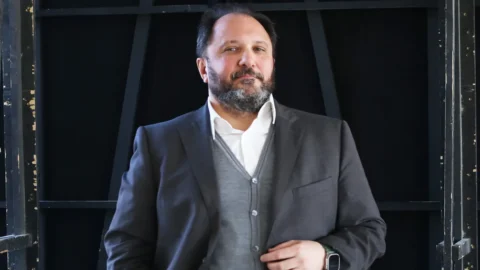Faced with the rising tide of the banking crisis, the fears and uncertainties of savers and the risks of hiding responsibilities by lumping everything together, as populist fascism would like, the first thing to do is a good parliamentary inquiry full light on the crisis of the four banks saved by the Government on the brink of the abyss. An investigation that does not discount anyone and that puts the spotlight on both the action of the four banks at the heart of the crisis – the Popolare dell'Etruria and Lazio, Banca Marche, the Cassa di Risparmio di Ferrara and that of Chieti – both that of the supervisory and control authorities (Bank of Italy and Consob) and that of the Governments that have followed one another since the Cirio, Parmalat and Argentina bond crisis to date.
"Knowing in order to decide" recommended Einaudi and the parliamentary commission of inquiry into the banking crisis is the first step to take. But quickly, because otherwise the risk is that of beating about the bush without coming to anything.
Beyond ascertaining the causes of the crisis, the responsibilities of those who provoked it and the reforms necessary to better inform and protect savers and the fairness of the markets, three guidelines already appear clear for the future.
At the top of the agenda can only be there maximum clarity on who has to pay the price of the banking crisis today and tomorrow: not the taxpayers and therefore not the State, but the banks that caused the collapse and therefore the shareholders and their management groups in the first instance, then the bondholders and finally the more well-off account holders (from 100 euros upwards).
This is exactly what the European directive on bail-in (that is, on the internal bailout of the bank in crisis and not at the expense of the community) that Italy has approved and implemented, even if now some particularly nonchalant political leaders (from Salvini to Grillo and Berlusconi) pretend to have forgotten about it, thinking that the Italians are all dumb or oblivious. The bail in, and therefore the rescue of banks in crisis by the banks themselves, must remain the compass that guides emergency management. But with additional information for citizens and savers which has been very lacking so far.
In this context, one can evaluate – and this is what the Government is doing – whether they are possible transitional solutions that, in compliance with the constitutional provisions and European rules, come to meet the weakest savers who have been misled from banks in crisis or from bad information, but knowing that the point of arrival from January XNUMXst can only be the bail-in.
What politics must certainly do is approve quickly a law that prohibits the retail sale of potentially dangerous financial products such as subordinated bonds, which also play no small part in the events of these days and which must be reserved only for institutional investors.
Thirdly, it becomes essential to open a match with Europe. Not so much on the management of the current crisis but on the entire banking policy of the European Union. There are at least four aspects of European banking policy that cry out for revenge and that need to change:
1) over regulation that suffocates the banks with continuous regulations that bridle and disorient them;
2) too restrictive rules oriented only to stability rather than the development of banks with a continuous and unsustainable upward adjustment of capital requirements;
3) enough with the policy of children and stepchildren: it is not possible for the European Commission to close its eyes to the most daring bailouts of German or Northern European banks and see the shadow of state aid behind every Italian intervention, as also happened on the occasion of the last bailout decree banks;
4) enough with the schizophrenia of the ECB, where there is an enlightened president like Mario Draghi who tries in every possible way – with Qe and with a policy of low or even negative rates – to give breath to the recovery by strengthening credit to businesses and households, which is however contradicted by the of ECB Supervision which is stressing the banks both with continuous tests, restrictive rules and pressing requests for capital strengthening which paralyze the banks by preventing them from lending to the real economy.
Without solving these problems, it will be useless to hope for stronger economic growth than the current one simply because – as Giuseppe Zadra warned many months ago on FIRSTonline, a farsighted banker who sadly passed away, and as he recalled last Wednesday Professor Giovanni Ferri – it will be difficult to find who can actually finance the recovery.





